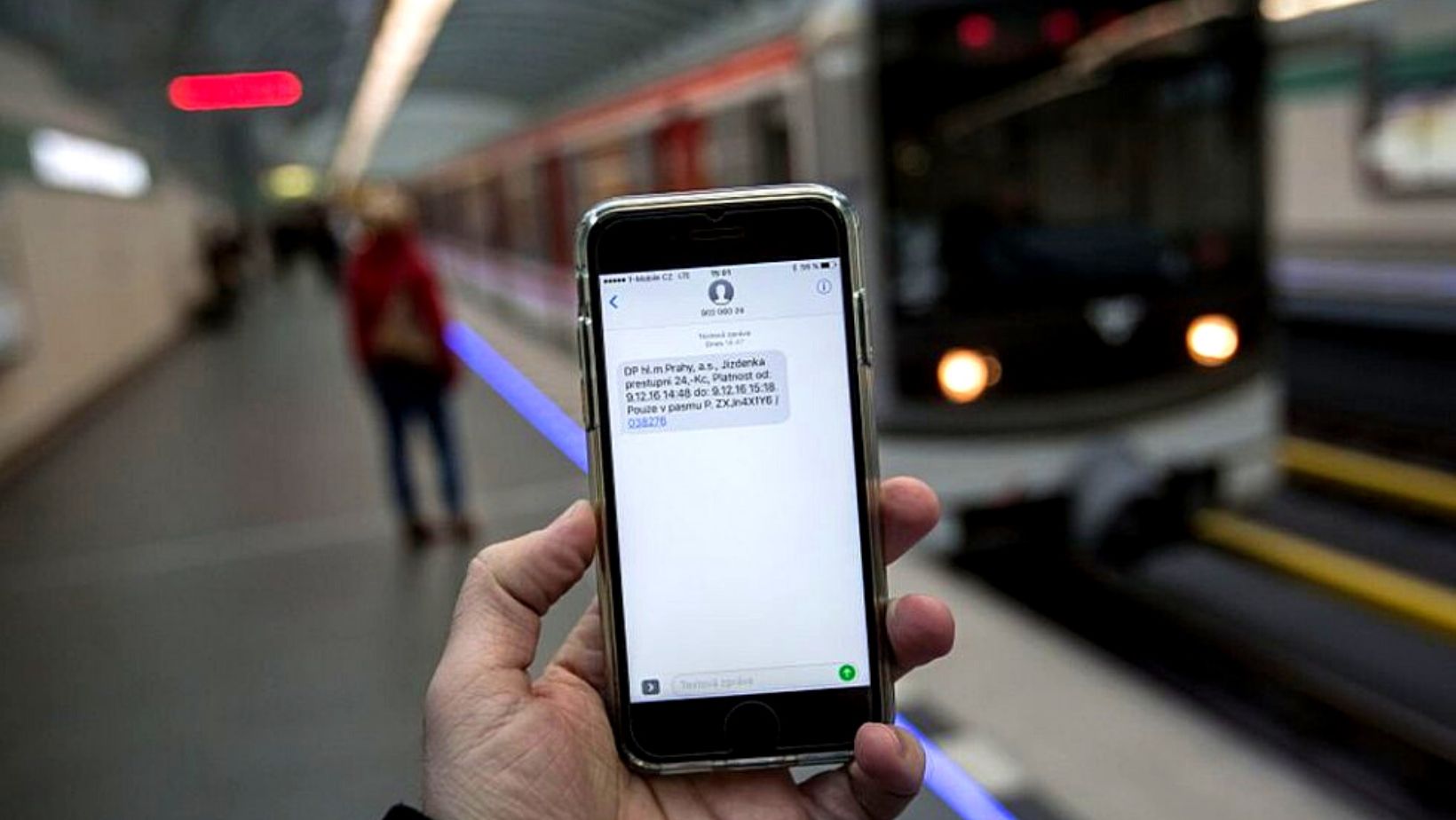SMS Tickets for Public Transport are More Expensive Than Paper Ones. We Know Why

The new Prague Integrated Transport (PID) tariff, which was approved by councilors in the spring, has a different price for the same ticket according to the way passengers buy it.
SMS tickets, which are used by most people, are more expensive than buying a ticket in the Lítačka app. The city explains that this difference is due to commissions from the mobile operator.
“SMS tickets are now up to two crowns more expensive than paper tickets or from the PID mobile app because they are burdened with margins for the private operator,” said Ropid spokesman Filip Drápal.
A new 30-minute ticket purchased with a text message costs CZK 31, while a paper ticket purchased through the app costs CZK 30.
There is a similar difference with a 90-minute ticket: instead of CZK 40, it costs CZK 42 for an SMS ticket. Commissions for the sale of individual tickets vary significantly depending on the distribution channel.
“The SMS ticket has always been understood as an additional service, which is also valid only to a limited extent (it is not valid on suburban buses and trains in Prague or in any means of transport in the Central Bohemian Region). That is why Prague has developed the PID Lítačka mobile app, which enables the purchase of all types of tickets, without a surcharge,” adds Drápal.
Although the number of PID Lítačka users is growing, many people still use SMS tickets. “They’re probably buying it out of habit. Prague spends tens of millions of crowns a year on it. So the extra crown for SMS should motivate you to switch to the mobile app,” says Zbyněk Jiráček from PID on Twitter.
The data that MF DNES obtained from PID show that a large number of people buy SMS tickets every month. In May of this year alone, over 994 thousand tickets were sold, compared to 250 thousand bought through the app. These statistics are still affected by the coronavirus pandemic and reduced mobility.
“The more people switch from SMS tickets to the app, the more advantageous it is for the city,” adds a PID spokesman. Approximately 19 million SMS tickets for Prague’s public transport were sold annually before the pandemic.
“We’re getting the whole amount”
For the city, the most advantageous sale is through its own ticket machines, information centers, or DPP points of sale. “In this case, we get the full amount for each ticket sold, we do not pay any commission to the distributor. The second most advantageous distribution channel for the city is contactless terminals in trams and metro stations, because 98.1% of the sale goes to DPP,” says DPP Communications Director Daniel Šabík.
DPP gets 96% of the sale of classic paper tickets in newsagents or other channels and 95% of the ticket price for those bought via the PID Lítačka app.
“At the turn of June and July, sales climbed to daily highs since the launch of the app. We expect a further increase as passengers’ awareness of the PID Lítačka app and the possibility of purchasing tickets directly from a mobile phone increases,” added Petr Habáň, spokesman for the Operator ICT.
Support Prague Morning!
We are proud to provide our readers from around the world with independent, and unbiased news for free.
Our dedicated team supports the local community, foreign residents and visitors of all nationalities through our website, social media and newsletter.
We appreciate that not everyone can afford to pay for our services but if you are able to, we ask you to support Prague Morning by making a contribution – no matter how small 🙂 .




